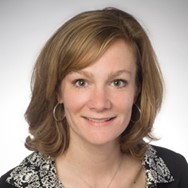Provider-to-Provider Line Changes and eConsults: A Q&A with Endocrinologist Dr. Kate Ness
 Seattle Children’s Endocrinology will begin piloting a discontinuation of non-urgent Provider-to-Provider line calls starting April 5, after their March 27 go-live of eConsults.
Seattle Children’s Endocrinology will begin piloting a discontinuation of non-urgent Provider-to-Provider line calls starting April 5, after their March 27 go-live of eConsults.
We sat down with Dr. Kate Ness to discuss the reasoning and review some case examples and what resources a community provider should use for each.
Q: Why is Endocrinology piloting discontinuing the non-urgent Provider-to-Provider line calls?
Dr. Ness: Seattle Children’s has determined that the Provider-to-Provider line is no longer sustainable in its current form. Endocrinology was chosen to pilot the discontinuation of responding to non-urgent calls so that the hospital can learn and be better prepared for the full discontinuation. Additionally, Endocrinology has an extremely high and disproportionate number of these calls, which is negatively impacting access. We have a clear plan to convert time previously spent answering these calls to being able to see patients in clinic.
Q: Endocrinology recently went live with eConsults. Can you provide an example of some issues a community provider may see in clinic that would be good candidates for an eConsult to your team?
Dr. Ness: We are really excited to have been in the first wave of eConsults and look forward to a new way to support our community providers. Questions about patients with short stature, mild thyroid function test abnormalities, and borderline precocious or rapid pubertal progress are all appropriate for eConsults.
Q: Conversely, what are some issues that you would consider urgent and appropriate for a call to your on-call provider?
Dr. Ness: We consider questions about children with new onset diabetes, babies with congenital hypothyroidism and children with concern for adrenal insufficiency to all be urgent and appropriate for a Provider-to-Provider phone call.
Q: On that note, can you outline what happens when a community provider has an urgent question for our Endocrinologists?
Dr. Ness: Urgent calls are handled by our on-call attending Endocrinologist. When we are paged with an urgent call, we will very typically stop rounds or excuse ourselves from a patient’s bedside to call the community provider back. As outlined above, there are scenarios that are truly urgent and it’s completely appropriate to page us with those, and we are happy to respond. However, because of the impact on our hospitalized patients we do want to underscore the importance of ensuring our partners in the community are clear on what’s urgent vs. not.
Q: Sometimes our endocrinologists and community providers co-manage patient conditions. Could you give us some examples of issues that are co-managed and what community providers should do if they have a question or need to discuss plan of care with our team?
Dr. Ness: If the community provider has gotten thyroid function tests on one of our established patients and would like that patient’s usual endocrine provider to determine next steps, we would like them to send the results directly to the established endocrinologist through EpicCare Link In Basket messaging.
Q: If a provider has referred their patient to Endocrinology but feels they need to be seen sooner than they are scheduled for, what should the referring provider do?
Dr. Ness: We use decision trees to determine medical urgency for patient appointments, so we aim to see all patients in the medically necessary timeframe. If you have questions, please review our Healthcare Professionals site for resources related to the referral and scheduling processes.
Q: We know that initially eConsults are only available to providers and patients in Washington state – what should out-of-state providers do if they have a non-urgent question for Endocrinology?
Dr. Ness: Out of state providers can continue to call the Provider-to-Provider line until we have developed an alternative solution, such as expanding eConsult availability.